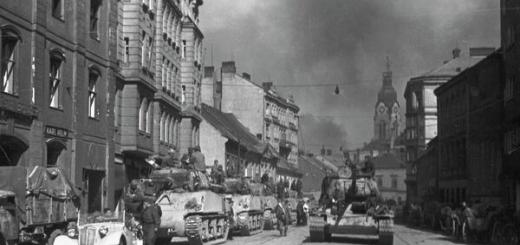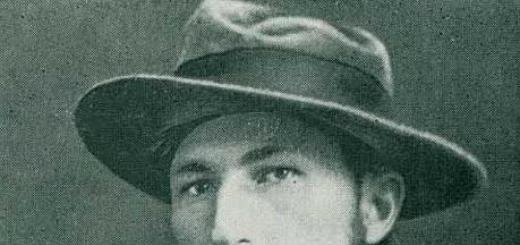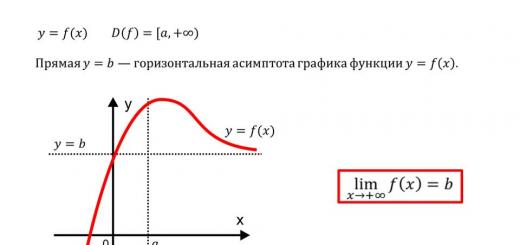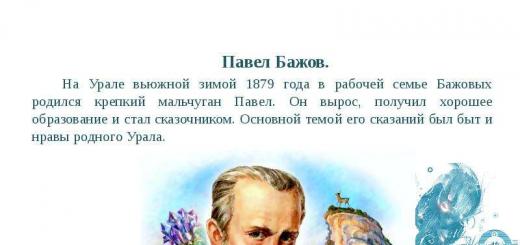The 2016 Olympics will take place in Rio de Janeiro, the second largest city in Brazil. The Summer Olympic Games will start at 18:00 on August 5, 2016 at the Maracana stadium (in Moscow it will be 00:00 on August 6). This is one of the largest stadiums in the world, built in 1950. It is worth noting that the stadium seats almost 80,000 people.
The closing ceremony will take place at the same stadium on August 21 at 18:00 (Brazil time). Tickets for the opening ceremony cost from 30,000 to 400,000 rubles. The price for attending the closing ceremony starts from 12,000 and ends at 510,000 rubles.
The 2016 Olympics will bring together almost 11,000 athletes from 206 countries. 306 sets of medals will be competed in 26 sports. An interesting fact is that the 2016 Summer Games will take place during the Brazilian calendar winter. And for the first time, the Olympic Games will be held in South America.

In the first week of the Rio Olympics, competitions will be held in cycling, rowing and kayaking, judo, diving, swimming, gymnastics, fencing, shooting, table tennis and weightlifting.


The 2016 Olympics may take place without athletes from the Russian Federation. The World Anti-Doping Agency calls for the Russian team not to be allowed to participate in the Olympic Games in Rio. Several track and field athletes and weightlifters have already been suspended from participation due to the erupted “meldonium scandal”. Moreover, Russian officials believe that the sports “scandal” is being deliberately politicized in order to denigrate and humiliate Russia.
The final action in the main arena of Brazil was accompanied by a downpour, which slightly spoiled the mood of the participants in the “parade of heroes”, the spectators in the stands and the organizers of the ceremony. Although for those who leave Rio in a good mood, with a sense of accomplishment and with a won medal, such a little thing as rain is unlikely to spoil the impression of the first Olympic Games in South America.
Medal count
Sputnik, Maria Tsimintia
Few doubted that the US team would win the overall team competition. In 1992, during the Games in Barcelona, the Americans took second place, losing to the united CIS team. Since then, they have consistently been among the leaders in the team standings. The only misfire happened in Beijing in 2008, where they lost leadership to the Chinese.

© REUTERS / PAWEL KOPCZYNSKI
The British, who at the Games in Barcelona (1992) and Atlanta (1996) did not even make it into the top ten, but finished in the top ten in Sydney (2000) and Athens (2004), became second.
Until the penultimate day of competition, Russia waged a desperate struggle with Germany for fourth place and ultimately managed to get ahead of its competitors, winning two more golds. The final medal of the highest dignity for the Russian national team was brought by freestyle wrestler Soslan Ramonov.
The Georgian national team won seven medals at the Olympics in Rio de Janeiro and, in terms of the total number of awards won, repeated the result of the London Games. However, it surpassed them in quality terms. Four years ago, Georgians climbed to the highest step of the podium only once. This time the Georgian anthem was played twice in Rio de Janeiro.
Georgian medalists of the XXXI Summer Olympic Games
Lasha Talakhadze (weightlifting, +105 kg)
Vladimir Khinchegashvili (freestyle wrestling, -57 kg)
Varlam Liparteliani (judo, -90 kg)
Lasha Shavdatuashvili (judo, -73 kg)
Irakli Turmanidze (weightlifting, +105 kg)
Shmagi Bolkvadze (Greco-Roman wrestling, -66 kg)
Geno Petriashvili (freestyle wrestling, -125 kg)

© REUTERS / STOYAN NENOV
It is impossible not to note the amazing progress of the Azerbaijani Olympians, who won 18 medals (1-7-10) at the Games in Brazil. They exceeded the London figure by eight awards.
Heroes of the Olympics...
Swimmer Michael Phelps, who, for a moment, is already 31 years old, again “came, saw, conquered.” At the Rio Games, the American won five gold medals and became a 23 (!) time Olympic Champion. It is difficult to even imagine that anyone will even be able to approach such indicators in the near future.

© photo: Sputnik / Alexander Vilf
Michael Phelps (USA), who won the gold medal in the men's 200m medley swimming, at the awards ceremony of the XXXI Summer Olympics.
Americans Katie Ledecky (swimming) and Simone Biles (gymnastics) were just behind Phelps, winning four golds each.

© photo: Sputnik / Alexey Filippov
Jamaican sprinter Usain Bolt again won three gold medals: 100 meters, 200 meters and 4x100 relay, becoming a nine-time Olympic Champion. At the last three Olympics, Bolt has consistently won these disciplines.

© photo: Sputnik / Konstantin Chalabov
Usain Bolt (Jamaica) after finishing the final 200m race during the men's track and field competition at the XXXI Summer Olympics.
...and "heroes of the Olympics"
The US women's track and field team dropped the baton in the semifinals of the 4x100-meter relay and failed to qualify for the decisive race. The Americans filed an appeal, saying they were interfered with by the Brazilian athletes. The appeal was granted. The US team was allowed to run through the semi-finals in splendid isolation. During the re-run, they showed a better time than their rivals from China, and the latter were “asked” from the final. The appeal of the Asian athletes was not satisfied, and the Americans became Olympic Champions.
Georgian heroes of Rio
If we do not take into account the Georgian athletes who won medals at the Rio Games, then Georgia has other heroes who have won the hearts of fans not only in their homeland, but also in the world.
Canoeist Zaza Nadiradze was incredibly happy when he was able to qualify for the Olympics. I couldn't even dream of more. But Nadiradze performed well in qualifying and reached the semi-finals of the single canoe competition at a distance of 200 meters. In the semi-finals, he finished first, leaving behind the current Olympic Champion, Ukrainian Yuri Cheban, and four-time World and European champion Valentin Demyanenko. But in the finals, nervousness and lack of experience in participating in competitions of this rank took their toll. As a result, Nadiradze took fifth place, but won the hearts of thousands of fans.

© REUTERS / MURAD SEZER
Seoul Olympic Champion (1988) in pistol shooting Nino Salukvadze came to Rio for her eighth Games in her career. A unique achievement among women in this sport. Salukvadze was able to reach the finals of the competition, but in the end she was left without a medal. After completing her performances, she said that she would most likely be preparing for the Olympics in Tokyo - the ninth in a row.

© REUTERS / EDGARD GARRIDO
David Kharazishvili became the first marathon runner in the history of Georgia to win a license for the Olympic Games. The Georgian athlete started well, but at the 25th kilometer he felt a sharp pain in his side. He didn’t run for almost two kilometers, he just walked and even thought about withdrawing from the race. However, he found courage and crossed the finish line. As a result, he took 72nd place, but ended up in the first half of finishers and left 93 athletes behind him.
40 Georgian athletes went to the Olympics in Rio de Janeiro, which is a record figure. For the first time in the history of independent Georgia, the country was represented in such sports as: women's weightlifting (Anastasia Gottfried), women's judo (Esther Stam), men's shot put (Benik Abrahamyan), women's high jump (Valentina Lyashenko).
Green water Rio
The water in the pool of the Rio de Janeiro aquatics center, where the diving competition was supposed to be held, suddenly turned green, which baffled even the technical staff. It later turned out that this was due to 160 liters of hydrogen peroxide accidentally poured into the pool. The substance neutralized chlorine, which promoted the growth of “organic compounds,” including, possibly, seaweed. Despite the fact that the water did not pose a threat to the health of the athletes, it still had to be replaced.
The last few days have not subsided: athletes, stars and ordinary fans were preparing for this grandiose sports festival. For our country, alas, this time it was overshadowed, because of which many Russian athletes, including the full athletics team, were unable to take part in the 2016 Games. But we won't. The organizers tried to do everything to please the audience and to make this Olympics, which was the first for Brazil, memorable for everyone.
Opening of the 2016 Olympic Games
The current Olympic Games are the first for South America and the second for Latin America - in 1968 the Games were held in Mexico. Rio de Janeiro has bid to host the Olympics more than once: in 1936, 1940, 2004 and 2012. Preparations for the large-scale event took several years, and the Brazilians had limited funds due to the economic crisis: for example, according to rough estimates, they spent only $20 million on the opening ceremony - this is half the cost of the ceremony in London four years ago and, according to rumored to be four times less than Beijing spent on the opening of the Games.
If 40 percent of houses in Brazil do not have sanitation, how can you spend billions on a show?
asked the Brazilian organizers.

And yet, even with such a modest budget by the standards of the world community, the Brazilians managed to put on a colorful show - with special effects, video projections, dances and songs. In total, about 35 thousand people were involved in the opening ceremony, and the television audience of the event was about four billion people!
The venue was the Maracanã Stadium, where a large-scale production took place dedicated to the history of Brazil and its future:
Athens, Beijing and London talked about the history and heroic past of their countries, and we will show what we should become in the future,
— the creative director of the opening ceremony explained shortly before the start of the Olympics.

A record number of giant LED screens and video systems, as well as the latest audio and video equipment were installed in the arena, which made it possible to turn the entire stadium into an organism pulsating in a single rhythm.
The ceremony began with the appearance of two aerial figures and a short greeting from the presenter. Dressed in all white, she gave a speech about peace and love, after which the Brazilian anthem played, played by the famous samba singer Paulinho da Viola.

Then the arena was covered in green and turned into a forest: the video projection symbolized the origin of life in Brazil - first there was a forest, the basis of the life of the country, and only then people appeared.
One scene in the stadium followed another: the arrival of Europeans on ships, the appearance of Japanese immigrants who taught the Brazilians judo, the construction of megacities, the first airplane created by aviation pioneer Alberto Santos-Dumont...


Of course, one of the brightest moments was the appearance of the amazing girl in the arena. The Brazilian supermodel, who conquered the world and ended her professional career, nevertheless once again appeared on the catwalk, albeit an impromptu one, to walk in front of tens of thousands of spectators.

Gisele Bundchen



The ceremony continued with the musical part: a medley of Brazilian hits from various genres. Samba, rap, folk songs - there was just so much here. The whole stadium sang along to some songs!
All this was accompanied by the dancing of the artists in the arena, because it is difficult to imagine Brazilian culture without dancing. They also paid tribute to the Brazilian national martial art, capoeira, which combines elements of dance and acrobatics and is accompanied by national music.

But all this was a prelude to the main topic - the environmental problems of our time, which became the central plot of the entire opening ceremony. The Brazilians decided to focus on environmental issues when directing the show, and proudly called the 2016 Games the first environmental Olympics (that's why the ceremony began with a video projection of the forest!). For Brazil, environmental problems are very acute, because massive deforestation of the jungle in the 20th century caused serious damage to the country.
But at the ceremony it was not only about Brazil, but about the fate of the entire planet - global warming, which will once and for all change the map of the world. The organizers presented this threatening picture clearly, showing how the world's oceans will wipe out countries and cities if the temperature rises another 4 degrees.
The world must unite in the face of a threat in order to preserve the planet for posterity - this was the call to humanity made by the Brazilians at the opening ceremony. And therefore, all participants in the parade of athletes this time planted tree seeds - each team was given special bags, which the athletes placed in special cabinets. From these seeds a forest will then grow: it will have 207 species of trees - exactly the number of countries taking part in the current Olympics.

The parade of athletes was opened by the Greek delegation, as always, because it was in this country that the Olympic Games originated, and Brazil closed it. Interestingly, the schedule of appearance of the teams at the stadium was unusual, not in the alphabetical order to which we are accustomed. All because they started from the Portuguese language.


Each of the 207 teams was greeted with applause and shouts, but we, of course, waited. Our athletes - 250 people in total - appeared on the arena only 159th in a row.
The standard bearer of the Russian team was the legendary volleyball player and Olympic champion Sergei Tetyukhin. For other teams, the flags were carried by no less famous athletes, whose names are known to the whole world: for example, the most titled Olympian in history, Michael Phelps, became the flag bearer of the USA.











The parade of athletes lasted several hours, during which the music did not stop at the Maracana stadium. Finally, all the teams took their places, and the final part of the ceremony began.
In the arena, performers with huge mirrored cabinets lined up in the Olympic rings, which, to the amazement of the audience, opened up and suddenly turned into a real jungle - in each cabinet there was a tree. A riot of greenery engulfed the stadium, followed by fireworks.




There was still an official part ahead: after the fireworks, IOC representatives and other officials made their speeches (about the refugee team, world peace, the holiday of sports, unity and much more), who declared the 2016 Olympics officially open.
There was a touching moment: the legendary Kenyan runner Kipchoge Keino appeared at the stadium and was presented with a special award - the Olympic Laurel Branch for his contribution to the development of the Olympic movement.

Thomas Bach


Well, what next? And then the whole stadium turned into one big party: samba sounded in the arena, because 12 of the best samba schools in Rio appeared on the field at once. Everyone, young and old, danced. There was only one thing left to do - light the Olympic flame. This honor was entrusted to several eminent Brazilian athletes, who lit the Olympic cup. And after a few minutes it began to rise into the air, after which a sun-shaped structure hung over the stadium.


Fireworks shot into the air again. And again the stands erupted in enthusiastic shouts. The ceremony was over, but the competition had just begun. In just a few hours, the first sets of medals will be played out in Rio - we hope the Russians will be able to prove themselves!
During these three weeks of the Olympics, we will monitor the success of our team and tell you about all the most interesting things that are happening in Rio. In the meantime, we invite you to remember the last opening ceremony and look at the bright shots.





























Photo Gettyimages.ru/Instagram
There is less than a year left to wait until the opening of the next Summer Olympic Games. The main sports competitions of the four-year anniversary will start on August 5, 2016 in Rio de Janeiro at the Maracanã stadium. For the first time, the Olympics will be held in South America.
Summer Olympics 2016were far from the first application for holding this type of competition in Brazil. Rio de Janeiro previously competed to host the Olympics in 1936, 1940, 2004 and 2012. Attempts to host the main Games were successful for only the fifth time for Rio. In addition to Brazil, Madrid (Spain), Tokyo (Japan) and Chicago (USA) also competed for the right to host the XXXI Summer Games. Interestingly, at the first stage, St. Petersburg also competed for the opportunity to host the Summer Olympic Games. However, in the summer of 2007, after the city of Sochi received the right to host the 2014 Winter Games, the northern capital withdrew from this race.
NUMBERS
The Summer Olympic Games in sunny Brazil will take place from August 5 to 21. August in this country is considered calendar winter. The air temperature here at this time is from +18 to +25 degrees. In Rio de Janeiro, August is the coldest and windiest month of the year, but at the same time one of the sunniest (22 days of clear weather). The opening ceremony of the XXXI Summer Olympic Games will begin on August 5 at 18:00 local time (in the Southern Urals - 2 am). According to the tradition that began at the 1996 Games, it will be Friday.
Feature of the upcoming Olympics will be a return to the official program after a long absence of such sports as rugby sevens and golf. The last time rugby competed at the Summer Games was 92 years ago, golf has not been considered an Olympic sport for the last 112 years.
According to the organizers, in the upcoming competitions over 10 thousand athletes will take part, which will represent 205 countries of the world. Athletes will play 306 sets awards in 42 types. The largest number of medals - 47 sets (23 for women, 24 for men) will go to track and field athletes. Almost 5 thousand award and 75 thousand commemorative Olympic medals will be produced by the Brazilian Mint.
Over 7.5 million tickets tickets for sports competitions are already available by booking through the National Olympic Committee. The cheapest seats at the opening ceremony will cost spectators $86, while the most expensive seats go up to $2,000. The average price of a ticket to the competition is $30.
Official cost of preparing for the Olympics in Brazil today is $2.9 billion. The amount differs significantly from the originally announced - 1.8 billion. The organizers attributed the significant increase to inflation, the addition of new species to the program and an unforeseen increase in costs for the development of the Olympic village.
SYMBOLS OF RIO 2016
Emblem of the XXXI Olympic Games, according to its creators, symbolizes Rio de Janeiro itself. The symbol of the future Games is based on the three colors of the national flag of Brazil, and the winding lines represent the sea, sun, mountains and silhouettes of people dancing together.
- Vinicius and Tom- presented back in November 2014. The patrons of the Games received their names in honor of famous Brazilian musicians. The characters represent collective images of the rich flora and fauna of a tropical country. The Olympic mascot was depicted as a smiling yellow animal, Vinicius, similar to a cat. Tom, resembling a cross between a flower and a tree, is the mascot of the Paralympic Games, the personification of Brazilian flora.
OLYMPIC FLAME
The traditional lighting of the fire will take place on April 21, 2016 in Greece. The flame will be delivered to the capital of the Games on a special flight by air by April 27, and will start on May 3 Rio 2016 Olympic torch relay. It is planned to involve 12 thousand torchbearers. The length of the walking route for each participant will be about 200 meters. The total length of the route will be 20 and 16 thousand km by land and air, respectively.
The relay will take place almost throughout Brazil, and almost 90% of the country’s residents will have the opportunity to see this event. The end of the long journey of the Olympic flame will be the grand opening of the Olympic Games in Rio de Janeiro.
OLYMPIC OBJECTS
Sports venues The organizers divided it into four zones: Copacabana, Maracana, Deodoro and Barra.
Copacabana As one of the most famous beaches in the world, it will be an area predominantly for aquatic species. Medals will be awarded here for sailing, open water swimming, triathlon, rowing, as well as cycling (road), walking and marathon.
Maracanã Zone named after its central sports facility - the famous football stadium. It is at the Maracanã stadium that the opening and closing ceremonies of the Games, as well as football competitions, will take place. Other facilities in this zone include the Maracanisinho volleyball arena and the João Havelange stadium, where track and field athletes will compete.
Formerly a military base Deodoro According to the organizers, for the duration of the Games it will become a competition zone where medals will be played out in equestrian sports, modern pentathlon, fencing, rowing slalom, cycling (BMX, mountain biking) and shooting.
The largest and most competition-rich area in Rio will be Barra. Within its boundaries will be located: the Olympic Arena (rhythmic and artistic gymnastics, trampolining), the Olympic Tennis Center, the Maria Lenk swimming pool (water polo, diving), the water sports center (swimming, synchronized swimming), the Rio Center (boxing , badminton, table tennis, weightlifting), Olympic halls 1-4 (taekwondo, judo, wrestling, basketball, handball), golf center, velodrome.
In addition to sports grounds, Barra is home to the Olympic Park and the Olympic Village, as well as press and television centers.
By sports standards, the wait is not too long until the opening of the Olympic Games - less than a year! In some sports, the fight for tickets to the main competitions of the four years is already in full swing. It is too early to talk about possible results and make any predictions. However, fans of the Russian team believe that very soon the next Olympic Games will write new Russian names in the history of world sports.
RIO DE JANEIRO, August 5 - R-Sport, Anatoly Samokhvalov. The opening ceremony of the 2016 Summer Olympics will be held at the Maracana Stadium in Rio de Janeiro with a modern spirit and without pomp.
All the nuances of the event are kept secret until the last moment, so that most of the program’s actions become a surprise for almost 80 thousand viewers and a huge television audience. The main feature (of those revealed) is the lack of pomp. Many are interested in how the organizers will try to cause tremors in the public, which is traditionally achieved through special effects on the themes of overcoming and triumph of willpower coupled with national character.
Talking Ceremony
Event producer Marko Balic said the show was organized taking into account the difficult financial situation in Brazil, and its estimate was almost half the $42 million spent on a similar event in London in 2012.
“There won’t be the grandeur of Beijing, the huge special effects of Athens and the technological innovations of London,” Balic surprised, noting that “it will be a simple ceremony,” but immediately tried to brighten up the situation: “But very modern.”
"Even without special effects, it will talk to people about the future. It will not be a demonstration of how good it is to live in Brazil," he added, noting the current situation of the Olympics, when athletes and journalists try to be vigilant against the backdrop of stories related to revelry domestic banditry.
“This will be a beautiful Brazilian Olympic sports ceremony,” Mario Andrada, director of the Olympic Organizing Committee for Communications, briefly but comprehensively described the opening. And Abel Gomez, one of Balich's three Brazilian creative specialists, outlined three components of the ceremony's mission, reflecting the essence of Brazil - nature, diversity, joy. “This is Brazil’s message to the world,” said another member of Balic’s headquarters, Fernando Meirelles. “If there were grand ceremonies in Beijing and London, then ours will be simply cool!”
Balic, by the way, organized the opening and closing ceremonies of the 2006 Winter Olympic Games in Turin, and also acted as executive and artistic producer of the closing ceremony of the 2014 Olympic Games in Sochi and the opening and closing ceremonies of the Winter Paralympic Games of the same year.
At the end of the ceremony, the main cauldron of the Olympic flame will be lit, and the President of the International Olympic Committee (IOC) Thomas Bach will declare the XXXI Summer Olympic Games open. The 75-year-old king of football received an offer to act as the last torchbearer. The legend himself announced that he received such an offer from Bach and the head of the 2016 Olympics organizing committee, Carlos Arthur Nuzman. However, Pele may be prevented from lighting the fire by certain contractual obligations. Brazilian top model Gisele Bündchen should also play an important role in the opening of the Games.
Kosovo je...no Brasil
The parade of Games participants will be the longest event. This time, about 12 thousand athletes from a record number of states - 207, including South Sudan and the unrecognized Republic of Kosovo, will march through the stadium. The Russian team, despite the exclusion of a significant part of the national team from the Olympics, will appear as one of the most impressive delegations.
The 2012 Olympic champion in volleyball, silver medalist of the 2000 Games in Sydney, two-time bronze medalist (Athens 2004 and Beijing 2008) Sergei Tetyukhin was unanimously elected as the standard bearer of the Russian national team at a meeting of captains. “Tetyukhin is one of the most respected Russian athletes, this is an excellent choice,” said the President of the Russian Olympic Committee (ROC) Alexander Zhukov.
The refugee team will march under the Olympic flag
The flag of one of the Russians' main competitors - the US team - will be carried by 18-time Olympic swimming champion Michael Phelps, for whom "this time we are talking about much more than medals." The refugee team, approved by the IOC and consisting of ten athletes, will also take part in the parade of athletes. At the ceremony, this team will follow the Olympic flag in front of the team of the host of the Games, Brazil.
"Of course, we want to represent our countries, but now we represent the biggest flag, the flag of all the countries in the world that have refugees. We will represent all the refugees here, and we want to set an example that you need to continue to follow your dreams, no matter what obstacles,” said Syrian swimmer Yusra Mardini, who left her native Syria because of the war and moved to Germany.
The opening of the Olympic Games is also associated with increased security measures. At least, this is what the Brazilian authorities assure. The country's Minister of Justice, Alexander de Moraes, noted that the involvement of the army in maintaining order and preventing terrorist attacks will allow the freed-up federal police forces to be used in other important areas.
The ceremony will begin on August 5 at 19:55 local time (August 6 at 01:55 Moscow time) and will last about three hours. Live










